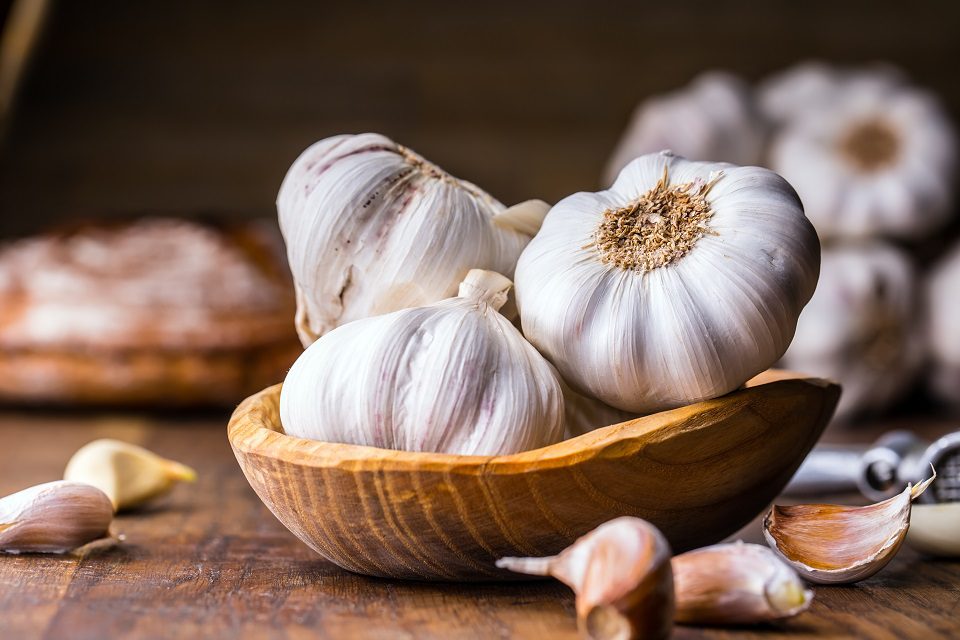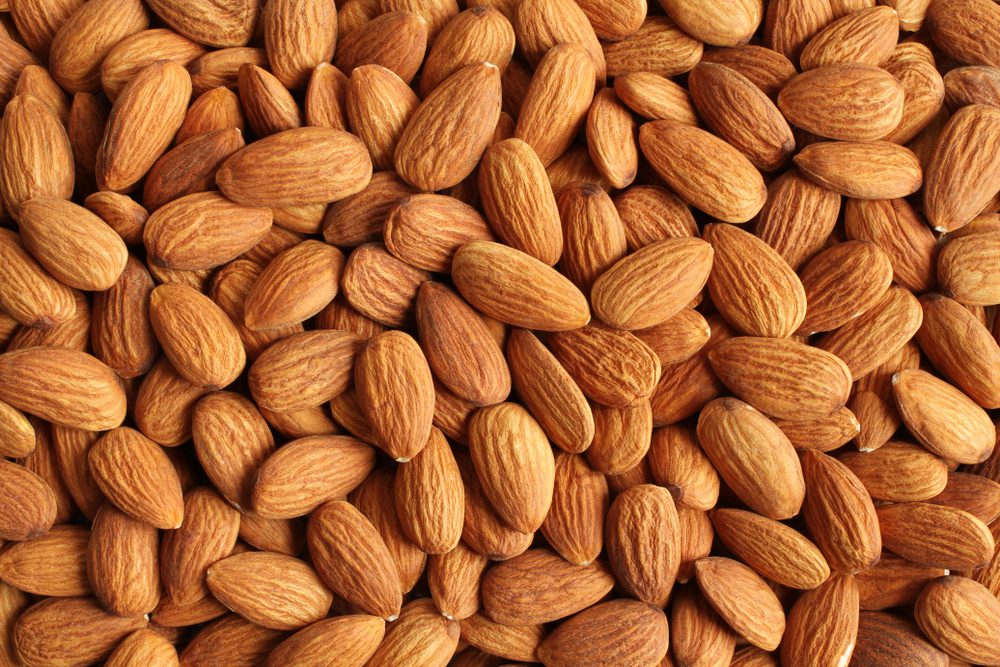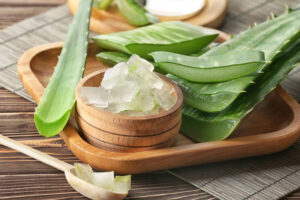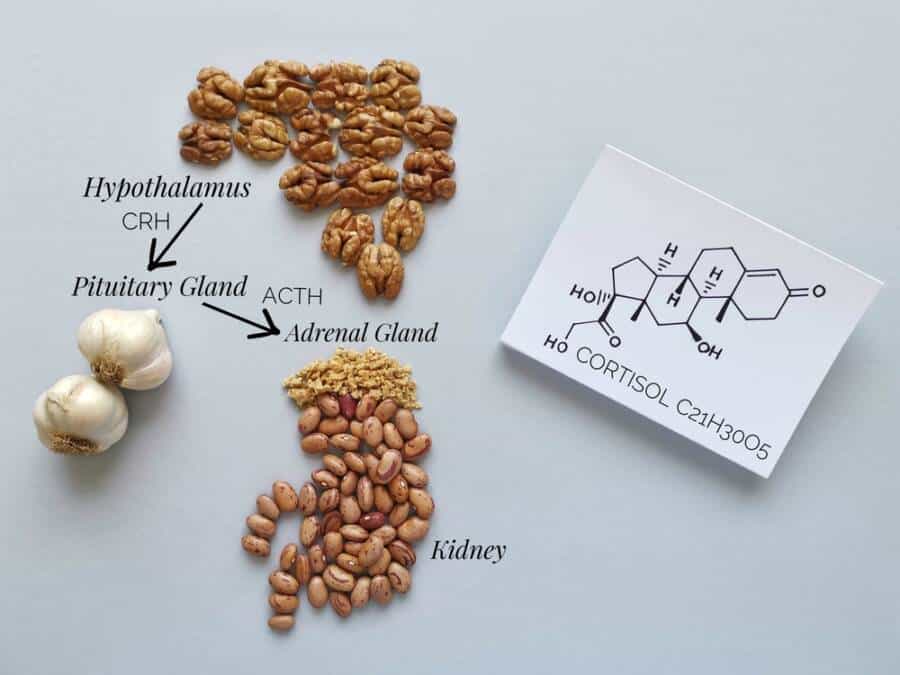Did you know you can destroy all germs and viruses with the appropriate vitamins you get from your diet?
A few years ago, I think none of us imagined that we’d be spending so much time trapped in our homes with minimal entertainment under lockdown.
Unfortunately, COVID-19 can still be the main topic of interest as we were doing our best to stay safe amid new variants. The stake seemed even bigger before we had access to getting vaccinated and gaining immunity. Thankfully we have long passed those moments of panic in our lives but they were important in teaching us how careful we have to be and how important our immune system is.
Back then our only hope was to strengthen our immune system so we can avoid complications in case of infection. Since then we have learned well how our diets can make a huge positive difference; specialists even have evidence that some foods can destroy germs or parasites and guard major systems from viruses.
Today, we’ll have a look at 11 foods scientifically proven to strengthen your immunity to keep you safe and healthy naturally.

For healthy cells and healing: Citrus
Although our bodies produce certain nutrients naturally, vitamin C isn’t one of them – and trust me, you really need it.
Firstly, this water-soluble nutrient protects healthy cells inside your body from external damage. Vitamin C is basically an antioxidant that protects you from toxic free radicals (compounds found in the environment that increase your risk of cancer or heart disease).
Additionally, this wonder vitamin is also essential to help your body produce collagen. Collagen keeps your joints strong and boosts skin elasticity, thus reducing unpleasant aging signs.
The best part? You can get your daily dose of vitamin C just by drinking a small glass of fresh orange juice (or eating a whole grapefruit) daily. If you’re not into those foods, note that lemons, limes, tangerines, and clementines have the same positive impact.
Quick immunity boost: Red peppers
Adding some diced red bell peppers to your salads, pasta or burgers is a small step that makes a huge positive difference. Why?
A single medium-sized red bell pepper gives you 152 milligrams of vitamin C, which is just how much specialists recommend getting daily.
But there’s more: this veggie is one of the top sources of beta carotene worldwide. Much like vitamin A, beta carotene strengthens your mucous membranes – the outer protective layer that covers all organs inside your body. This nutrient also promotes good vision and skin elasticity, which is a must since we’re washing our hands 20 times a day, right?
Bug killer: Broccoli
There’s a reason why everybody keeps talking about broccoli – and it’s not the myth that most kids hate it. This green vegetable is an excellent source of vitamins A, C, and E; it also gives you plenty of phytochemicals that strengthen your immune system instantly and prepare it for battle.
Broccoli also contains lutein, one of the most powerful antioxidants out there. These nutrients alone give you better vision, better skin, and stronger immunity – all while regulating the digestion process. But there’s more.
Broccoli is rich in sulforaphane, a gas that can literally kill a species of tiny garden bugs often lurking on cruciferous veggies such as cabbage or kale. This sulfur-rich compound is the same reason why broccoli may smell weird when you cook it.
In order to get this valuable compound into your body, make sure that you don’t overcook broccoli. As a rule of thumb, the rawer you keep it, the more nutrients you get!

Fighting off infections: Garlic
Have you ever wondered why so many recipes contain garlic?
Aside from guarding us against vampires, of course, this vegetable has been used since ancient times to fight off infections – and now we know the science behind it too.
Garlic is very rich in sulfur-containing compounds like allicin. These compounds literally make your immune cells stronger, which helps you fight off common colds, the flu, and even viruses (COVID-19, I’m looking at you!).
Specialists advise us to eat up to three garlic cloves every day, which is indeed a lot for most people unless you have serious garlic practice. However, even tiny bits of garlic tossed into your favorite dish can make a big difference and keep you healthy.
Improved digestion & immunity: Ginger
Much like garlic, ginger has been used by our ancestors for its amazing health properties. In fact, this is one of the few gastronomical ingredients that offer so many benefits including reduced inflammation and digestive problems.
Gingerol is the main bioactive compound in ginger, which can be used in teas and food recipes as well. It’s often recommended to reduce nausea, especially in pregnant women, but it works equally great at alleviating cramps and stomach pain.
Since gingerol has anti-inflammatory properties, consuming it can ease a sore throat or swollen glands – both of which are very useful during virus infections or common colds.
Specialists generally recommend consuming 3-4 grams of ginger extract daily; this is the equivalent of four cups of ginger tea.
ATTENTION! If you’re pregnant, do not consume more than 1 gram of ginger extract per day! Several studies have linked increased ginger consumption to miscarriage; always talk to your doctor before ingesting this ingredient.
Antibody production: Turmeric
Over the past few years, the supplement industry has been exploding with many products containing turmeric – and for good reason. Turmeric is one of the top sources of curcumin, a compound renowned for its anti-inflammatory properties. Aside from helping you cure a sore throat, curcumin can also work wonders for treating muscle or joint soreness after each workout session.
However, the most important health benefit offered by turmeric is how it boosts antibody formation which helps you keep infections at bay. In fact, doctors are often prescribing 500 mg of curcumin daily to patients diagnosed with auto-immune conditions to ease pain and inflammation.
Generally, it’s recommended to take 500-2,000 mg of curcumin daily to fight off disease or strengthen your immune system; this is particularly beneficial during the flu season when more bacteria and germs are lurking around. However, it’s best to ask your doctor first.
Check out our recommendation for turmeric supplements here!
Infection tropical healer: Papaya
Regardless if you’re into tropical flavors or not, now you have a few solid reasons to add papaya to your diet. Firstly, a single papaya fruit packs twice much vitamin C as your daily recommended intake; as we already know, this micronutrient is essential for a strong immune system.
But papaya also has an enzyme suggestively entitled papain, which helps to reduce inflammation naturally. Although this property is beneficial in most illnesses, it’s particularly important for bacterial infections such as sinusitis. Aside from potassium and vitamin B, papaya is also rich in folate – an essential nutrient to rebuild damaged cells. It helps you build muscle by boosting the process of protein synthesis and it also helps your body recover after seasonal illnesses.
Folate is particularly important for the fetus’s development, which is why pregnant women are always advised to supplement their diet with this nutrient. Whether you’re pregnant or not, though, you should ideally get 400 micrograms per day. Other great sources include avocado, spinach, and legumes.
Building healthy cells: Kiwi
Since we’re talking about tropical fruits, how about some kiwi? Aside from being delicious and exotically looking, this green fruit is basically one of your top allies for strengthening the immune system.
This superpower mainly comes from the high content of vitamin K, folate, vitamin C, and potassium found in kiwi. When these powerful nutrients are combined, the result is amazing: a powerhouse that can promote healthy cell production, as well as improve immune functions. Vitamin K is essential to help immune cells fight off diseases such as cancer or infections; although a deficiency in this nutrient happens rarely these days, if it does happen, your immune system gets compromised completely.
According to specialists, women should ideally get 90 micrograms of vitamin K daily while men should have 12 micrograms per day. Adding kiwi to your fruit salad or snack break can help you reach your daily intake naturally in a tasty way!

Warding off colds and flu: Almonds
Recently, more and more nutritionists and dietitians are recommending adding nut snacks to your daily diet. However, aside from being healthier than chips or candy (obviously!), this snack choice has plenty of hidden benefits. Perhaps the most important one right now is its immune-boosting function.
Almonds, for example, contain plenty of vitamin E. This micronutrient can keep your immune system up and running, thus protecting you from colds, the flu, and even COVID-19 complications. But here’s the trick: vitamin E needs to be consumed along with fats for proper absorption. Since almonds are an excellent fat source, this is the perfect combination to stay strong and healthy.
The fat content in fats can also reduce unhealthy cravings by promoting satiety, so you get to kill two birds with one stone!
Antioxidant bomb: Spinach
Unfortunately, spinach isn’t exactly adored although it should make it to our diets at least once a week. Why?
Firstly, the green leaves of this wonder plant are packing plenty of beta carotene, antioxidants, and vitamin C. Eating these three valuable compounds at the same time gives your body all the nutritional resources it needs to fight off any dangerous invaders like bacteria or viruses. If you want to get the full benefits of spinach, though, make sure to cook it as little as you can. Much like broccoli, the more you cook it, the fewer nutrients you get (especially antioxidants).
You can go for raw spinach by adding it to your salad to avoid cooking altogether while enjoying the overall flavor of your dish. If you really don’t like the spinach taste, though, you can hide it in your morning smoothie; our strawberry spinach smoothie recipe right here will teach you how!
Immunity booster: Sunflower seeds
Nutritionists always encourage adding a mix of seeds to your salads or consuming them as a snack for their nutritional benefits. However, sunflower seeds are particularly beneficial due to their wide range of nutrients such as:
- Magnesium
- Phosphorus
- Vitamin B-6
- Vitamin E
Each of these micronutrients can strengthen your immune system, especially vitamin E, which is essential to help immune cells function at maximum capacity when needed. Specialists recommend eating between 1 ounce (30 grams) and a large handful of sunflower seeds daily because they’re just healthy and harmless. If you’re going to eat fried varieties that contain sodium (salt), you might want to stick to the minimum recommended intake.
Staying healthy is far from easy, especially in this day and age when so many products and ready-made meals are overloaded with sodium, preservatives, and artificial flavors. But it’s not impossible either. As I always like to say, knowledge is power – and that’s exactly what we’re focusing on here at Wellness Captain: providing accurate information to keep our readers healthy in simple, sustainable ways.
However, you should make sure to never mix these medications with your food!













